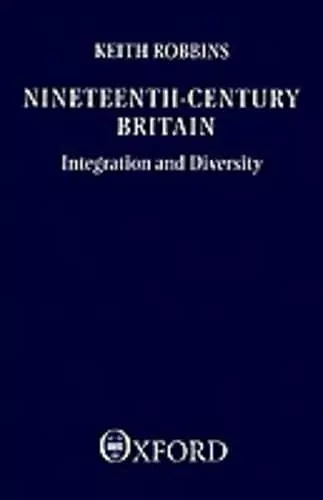Nineteenth-Century Britain
Integration and Diversity. The Ford Lectures Delivered in the University of Oxford 1986-1987
Format:Paperback
Publisher:Oxford University Press
Published:23rd Feb '95
Currently unavailable, and unfortunately no date known when it will be back

This is a study of two conflicting trends in nineteenth-century Britain: the promotion of integration and unity, and the commitment to preserve regional diversity. In the last century communications between different parts of Britain improved enormously, through the spread of railways, the penny post, newspapers, and increased affluence which enabled more people to take holidays; but this did not necessarily lead to uniformity. The Scots and the Welsh in particular were concerned to retain their own 'nationality' and culture, yet in ways which would not lead to political separation. Professor Robbins examines the various aspects which served to unite or divide the regions: the role of the church and religious beliefs, patterns of eating and drinking, the political system, commercial development, the educational system, language, literature, and music. He concludes that there was a 'British' nation which was consolidated through the century. Although not uniform in character, it held together during the supreme test of the First World War, under the political guidance of a Welshman whose first language was not English and the spiritual guidance of an Archbishop of Canterbury who was a Scot. The relationship between region and state still lies at the heart of today's concerns with local government, devolution, and the North/South divide, and this stimulation account of the making of the modern nation will appeal to all interested in British history and politics.
fascinating volume ... asks enough of the right questions to stimulate further debate * Times Higher Education Supplement *
ISBN: 9780198205852
Dimensions: 219mm x 139mm x 12mm
Weight: 292g
212 pages